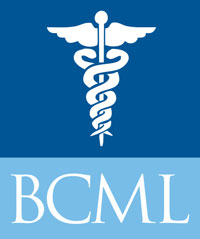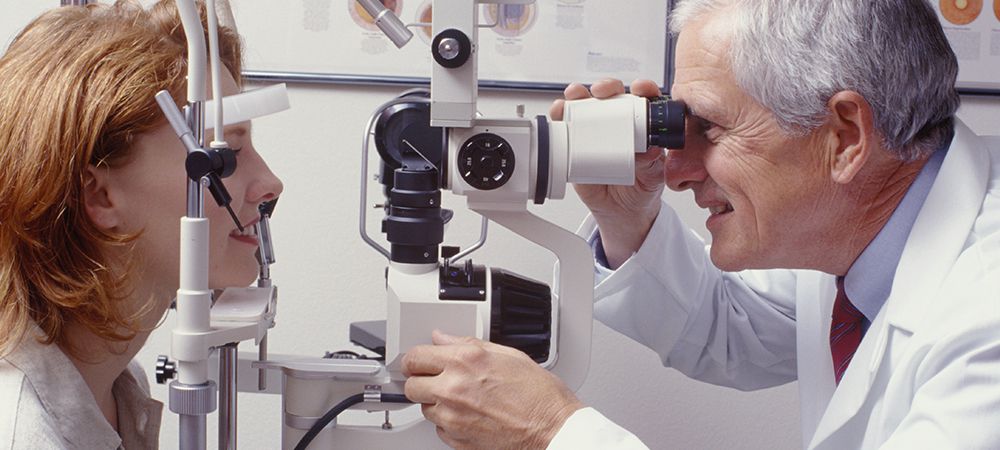While most people are familiar with an ophthalmologist being an eye doctor, some may not realize that an optometrist is also a doctor. If you have ever asked “is an optometrist a real doctor?” there is a good chance you may be thinking of an optician, who is also an eye care professional but not a doctor.
So, what is the difference between these three important members of your eye care team? What kind of training does an optometrist have and when should you see an optometrist? We will answer all these questions here.
What is an Optometrist and What Kind of Training Does an Optometrist Have?
An optometrist is an eye care professional who has received extensive schooling and training to earn a doctor of optometry (OD) degree. This training includes a 4-year Bachelor of Science degree, followed by four years of optometry school. They will have also completed clinical training and licensing. In short, yes, this qualifies an optometrist as a doctor. A doctor who, specifically, is trained to specialize in diagnosing and treating a wide range of eye conditions.
However, this is not the same as a medical doctor (MD) who will typically earn a Bachelor degree followed by four years of medical school and an additional three to seven years of residency. An OD should also not be confused by a DO (Doctor of Osteopathic Medicine). A DO also attends medical school like an MD but, instead of focusing on a particular part of the body or condition, a DO takes a whole body approach to treatment.
What Can an Optometrist Treat?
An optometrist can treat and diagnose a wide range of eye health concerns. They can also perform a complete eye exam which can reveal other health concerns such as diabetes, certain cancers, and high blood pressure. Often eye exams performed by an optometrist are critical measures in diagnosing these conditions early on. Various changes in the eyes can indicate the presence of these conditions before any other symptoms make themselves known.
Other services, treatments, and diagnostics that an optometrist provides include:
- Eye Exam: an eye exam is more than a vision test which reveals your ability to see. Instead, an exam includes an assessment of your physical eye including the retina, blood vessels, and cornea. This can reveal problems such as cataracts, macular degeneration, and other health problems.
- Prescribe Eyewear and Contacts: While an optician can fit you for glasses, an optometrist is needed to prescribe lenses. This includes determining if you need reading glasses, glasses for near or farsightedness or other vision issues.
- Treat Mild to Moderate Eye Trauma: This includes removing foreign bodies and treating scratches to the eye. As long as you do not require surgery, an optometrist is often able to treat your eye trauma.
- Provide Referrals: While there are many diseases and conditions that an optometrist can treat, you may need another kind of specialist or an ophthalmologist to continue your care. An optometrist can provide referrals to other doctors who can help.
- Pre and Post Operative Care: If you require eye surgery from an opthamologist, an optometrist can help with follow-up care. This can often be more convenient as an optometrist can typically provide appointment times more quickly.
- Advance Research: Optometrists are often at the forefront of research into optical care. They may work in the area of research and promotion of eye health.
What is the Difference Between an Optometrist, Ophthalmologist, and an Optician?
In short, an ophthalmologist can do everything an optometrist can with the addition of providing surgical eye care solutions. Your optometrist will typically refer you to an ophthalmologist if you need laser vision correction, cataract removal and other surgical procedures.
An optician is an eye care professional who will have completed a certificate program that qualifies them to provide eyeglasses and contact lenses. They are not doctors and cannot write prescriptions for lenses. However, they are the best professionals to help you find the eyewear that is best for you including the styles that will suit your lifestyle and preferences best.
When Should I See an Optometrist?
An optometrist is often the first line of defense in diagnosing and treating eye health concerns. While everyone should strive to get regular eye exams, there are several instances where you should make an appointment immediately.
When You Are Behind in Exams: Typically, those under the age of 40 should be fine with one eye exam every 10 years. Those over 40 should go every two years, while those over 64 should have a yearly eye exam. While once every 10 years may not seem significant, keeping up with this schedule can help to catch various health conditions early on. This includes both eye health issues and other health issues such as diabetes and high blood pressure.
Eye Strain: With our increasing screen time, many of us are also likely to experience increased eye strain. While this can often be resolved by taking regular breaks from the screen, if this does not help or you are experiencing increased headaches, an optometrist visit is advised. A simple eyeglass prescription could alleviate your eye strain symptoms.
Vision Changes: Vision changes can mean many things. While many temporary vision issues are nothing to concern yourself over, some should be taken very seriously. Vision changes that are likely not a concern include occasional floaters, or spots that go away quickly. Temporary blurriness when you first wake up or if you have been staring at a screen too long is also likely not an issue.
However, if you experience double vision, loss of peripheral vision, clusters of spots that do not go away or flashes of light, this is something you should have checked immediately. Double vision can be an indication that you have a detached retina which will require surgery to prevent permanent damage. Other vision loss issues can indicate anything from macular degeneration to stroke or even brain tumors.
Make Your Optometrist Appointment Today
Are you overdue for an eye doctor appointment? If so, you are not alone. Often, those who do not have vision concerns will forgo an appointment for many years. However, regular appointments can help to prevent eye problems from worsening and provide relief if you have eye strain.
At BCML, we provide a full range of vision health diagnostics and treatment. Get started with better eye health today by scheduling an appointment at (416) 929-1900.


